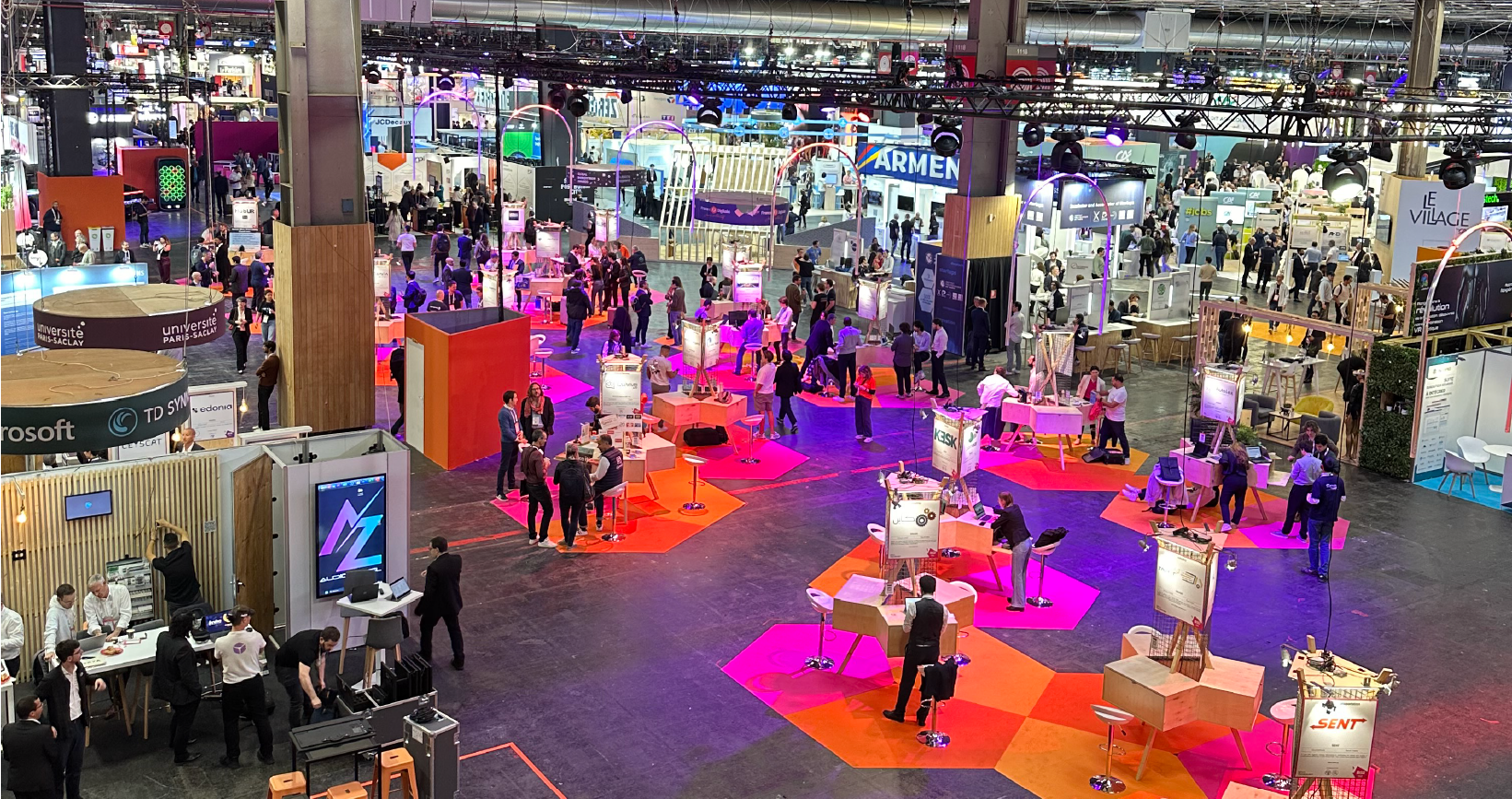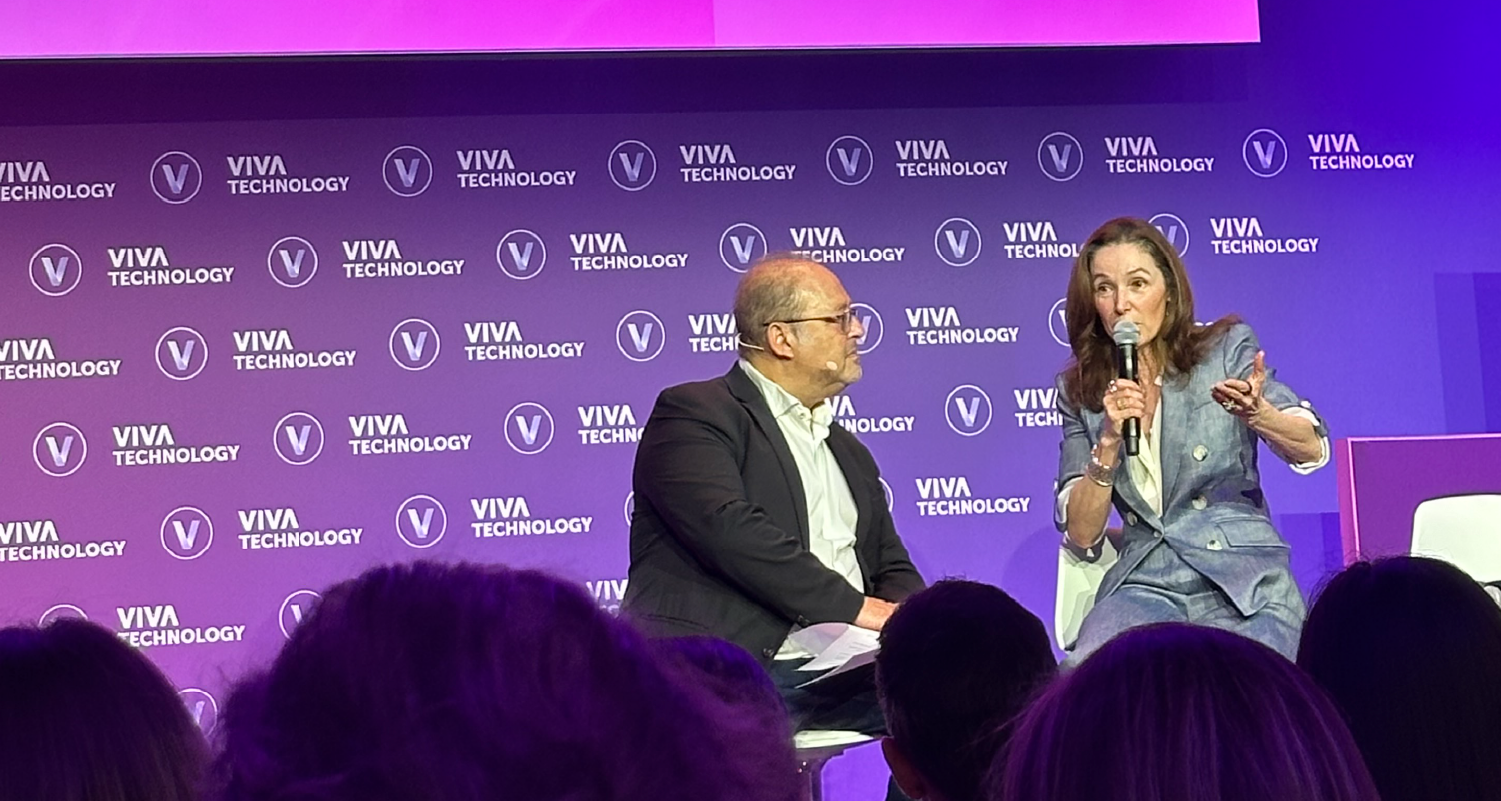Viva Tech 2024: A melting pot of innovation and AI advancements

Viva Tech 2024 in Paris brought together over 13,500 startups and 2,000 investors. You can imagine how lively and almost electrifying the atmosphere was. Some innovators consider Viva Tech a melting pot for technological advancements, and this year was no different.
The primary attraction of the conference is its dedication to the startups. These companies bring fresh perspectives and groundbreaking solutions and are often considered the lifeblood of the tech ecosystem. This year, Viva Tech features a diverse mix – from agile startups and small to mid-sized enterprises to giants like PWC, Ernst & Young, Mazars, Publicis Group, L'Oreal Group, Renault, Peugeot, BNP Paribas, AWS, Google, LVMH, Orange, and IBM.
The presence of well-established companies and startups created a dynamic environment where new and old learned from each other, enabling the development of continuous innovation and growth culture.
So, let's dive into the trends, challenges, and opportunities we encountered at Viva Tech 2024.
AI takes center stage
This year, AI was the undeniable star of the conference. Most panels, discussions, and exhibitions focused on how AI is currently reshaping the business landscape and what we can expect in the future. And the future seems brighter than ever. From predictive AI to generative AI – the conversations focused not only on the operational side of the business but also on the need to redefine the strategic approaches of businesses across industries.
Let's dive deeper.
We got a glimpse into the future, seeing how AI would transform various sectors. Engaging with industry leaders from diverse sectors, including HealthTech, SporTech, FinTech, and EdTech, gave us access to rich insights and further highlighted that the rise of AI is a universal catalyst for change.
One of the most profound lectures was a keynote from Publicis CMO Teresa Barreira. Mrs. Barreira made a compelling comparison to the era when Bill Clinton ran for presidency with the slogan, "It's the economy, stupid." She noted that the mantra for today should be, "It's the AI, stupid." This statement encapsulates the sentiment at Viva Tech – AI is no longer a futuristic concept; it's a present-day imperative – as was evident at the conference.
AI revolutionizes both startups and giants
Today, companies increasingly leverage AI to enhance efficiency, improve customer experience, and drive digital transformation. We witnessed it at various panels where leaders emphasized that successful AI implementation requires more than just technology. It needs the right partners who understand the nuances of integrating AI into existing workflows. Only with this approach can you ensure that AI initiatives are scalable and sustainable.
Additionally, a recurring theme was the emphasis on being data-driven. AI has an enormous ability to analyze vast amounts of data. However, it's up to humans to leverage this data effectively to drive innovation and growth. AI's influence on every aspect of business operations is profound, not just on the data side. This cultural shift also requires companies to rethink how they approach internal dynamics and employee roles.
This theme of collaboration and interconnectedness resonated throughout Viva Tech 2024. The discussions focused on how partnerships can leverage AI for enhanced customer experiences and digital transformation – on one side, startups bring agility and innovations, and established companies offer resources and market reach.
This was showcased in the prime example of Renault's collaboration with Software Republic, where traditional companies leverage new technologies to enter new markets and offer innovative solutions. As a result, they've launched their first healthcare vehicle, U1. The car is set to revolutionize access to healthcare services, showcasing the potential of AI-driven solutions to improve quality of life. A new business opportunity has opened.
The beauty industry is also being revolutionized. L'Oreal, a company known for its traditional business model, is now at the forefront of digital innovation. They've incorporated AI into their operations and thus enhanced customer experiences with personalized beauty products and virtual try-on apps. Slowly but surely, they are successfully transitioning into the digital age.
Salesforce AI CEO Clara Shih highlighted how the company integrates AI to enhance productivity and creativity within the organization. This integration is about automating tasks and empowering employees to work smarter and more innovatively.
Navigating the AI revolution
AI's impact spans various domains and changes how businesses operate and interact with customers, and these are the three key areas that are affected:
- Customer experience and digital transformation: Interactions will become more personalized and relevant. Context is becoming the new currency, and AI-driven insights are needed to enable businesses to tailor their offerings to individual customer needs. The goal is to enhance customer satisfaction and loyalty.
- The return of the human and the collective: Despite the rise of AI, human interaction remains crucial. AI can augment our capabilities, but humans still need storytelling and human-to-human interaction.
- Importance of ESG (Environment, Social, and Governance): With great power comes great responsibility – and ethical use of AI and data integrity will forever be hot topics. Businesses need to create sustainable and meaningful products that serve the greater good.
Indeed, we are returning from Viva Tech with plenty of insights that we are slowly transforming into lessons and potential applications. Here are some we found invaluable:
How companies can transform their businesses with AI
The future is here, and everyone needs to embrace it. We continue to see different ways AI shapes the future of business, where companies are unlocking new business opportunities by combining data and artificial intelligence. Here are some insights and potential applications we find valuable:
Invest in AI and democratize the data
Determining the right amount of investment in generative AI versus predictive AI can be tricky. Therefore, you must have clear objectives and find partners to help you navigate these priorities. The data you gain must be accessible, high-quality, well-conducted, and shared. A culture of sharing data can further drive innovation and ensure that all team members can leverage AI effectively.
The innovation part and operational side need to be flawless
Innovation, for innovation's sake, will not get you far. Businesses need to balance innovation and adoption, and new technologies need to be smoothly integrated into existing workflows.
AI will redefine jobs and, therefore, transparency
We have already seen the beginnings of job redefinitions, and in the future, AI will automate mundane tasks and create new opportunities. Companies need to prepare for this shift by upskilling their workforce and fostering a culture of continuous learning.
Additionally, it's essential to build trust within organizations and teams. Only with transparent communication can we create a more collaborative and innovative environment.
The need for strategic partnerships, ethical practices, and continuous innovation is present in many industries as companies dive into the complex world of AI and technology. As your digital partner, we will detect the core improvement areas that could benefit from implementing artificial intelligence and machine learning to supercharge your business. Get in touch.





